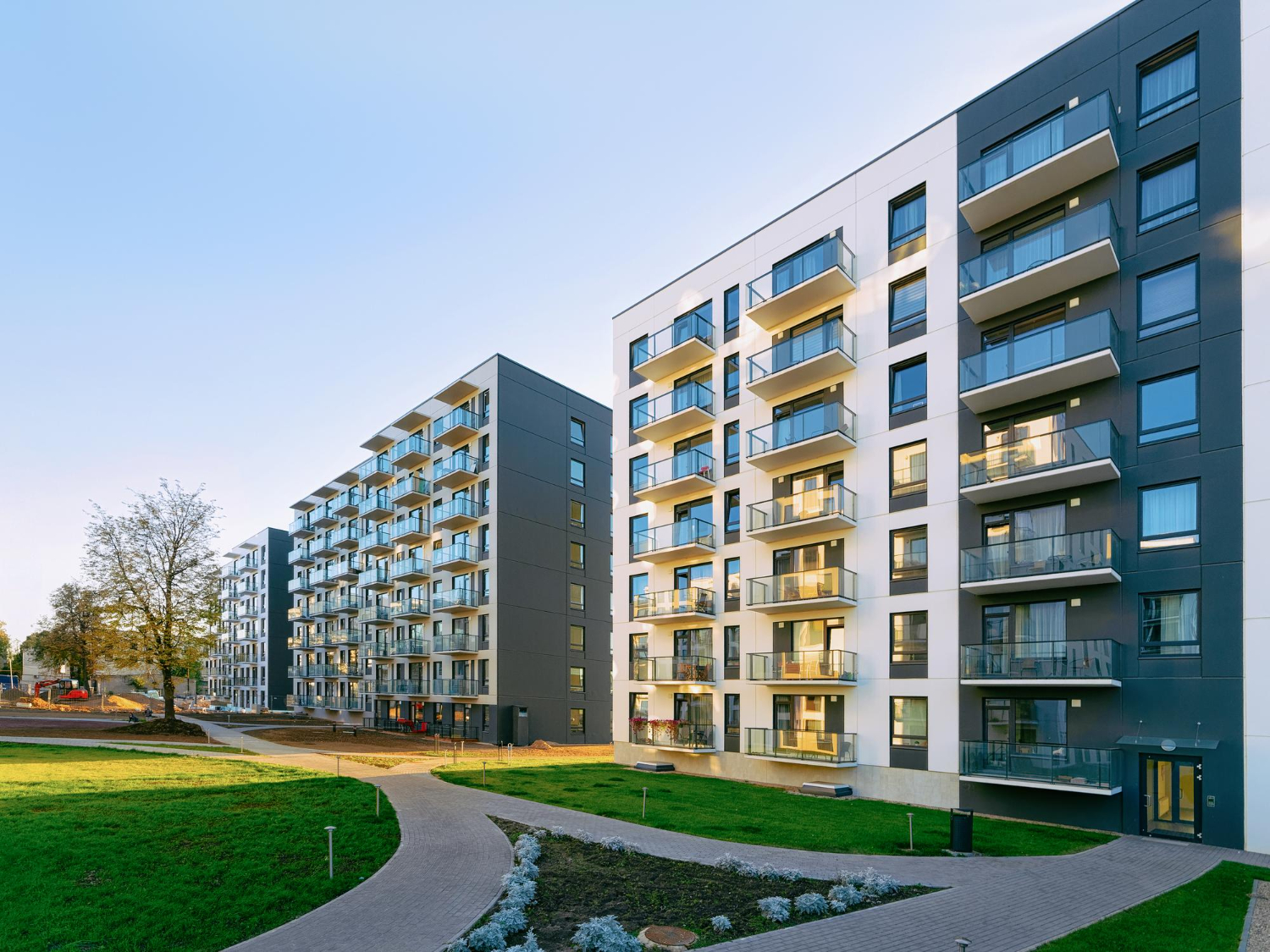5 Things to Consider Before Buying an Off-Plan Condo
Has the idea of buying a condo that hasn’t been built yet—that is, an off-plan condo—completely seduced you? Explore this article to discover the 5 essential points to know, from the preliminary contract to the signature at the notary’s office, before taking the plunge.

1. The Preliminary Contract
If you are planning to live in the off-plan
condo that you are buying, you will have to draw up a preliminary contract with
the developer or contractor responsible for the project[1]. Very similar to an offer to purchase, it binds you to purchase the condo under certain conditions,
while offering you various protections. Note that signing the preliminary
contract is not mandatory if you are buying the condo to rent it to a third
party.
2. Mandatory Clauses
As a rule, the preliminary contract contains the same clauses as an offer to purchase but includes certain additional obligations.
Right or Option to Withdraw
The right or
option to withdraw is a period during which you can choose not to purchase the
off-plan condo by withdrawing yourself from the contract. This must be for a
duration of at least ten days after you receive the disclosure statement[2]. If you use your right of withdrawal, the law nevertheless allows
the promoter to demand payment of an indemnity that cannot exceed 0.5 per cent
of the agreed sale price.
Refund of the Deposit
You will
probably have to pay a deposit when you sign the preliminary contract. If this
is the case, the law requires the developer to reimburse you this amount if the
condo is not ready by the date specified in the preliminary contract[3].
Taxes
To avoid any unpleasant surprises, make sure that the preliminary contract states whether the price of the off-plan condo includes taxes such as GST and QST.
3. Optional Clauses
Here are a few examples of clauses that may
be added, modified, or removed from the preliminary contract, by mutual
agreement with the developer or contractor.
Protection of Down Payments
As of January 1, 2020, deposits cannot be paid directly to the developer “without further action,” which means that they are protected by a security plan, insurance, bond or a deposit in a trust account[4]. In short, a developer or contractor cannot demand that money be paid directly to them.
Protection Against Legal Hypothecs
The legal
hypothec allows anyone who has been hired to build the condo to take it as
security in the event that the developer or contractor does not pay them for
their work. A maximum of 30 days is allowed to issue a legal hypothec on your future property[5].
To protect
yourself from this eventuality, you can request that a clause be added so that
the notary retains a portion of the funds to be paid to the promoter or
contractor until 30 days after the work is completed. You can also require that
the developer obtain title
insurance.
Choice of Notary
Although it is
common for a developer to want to have the same notary handle the entire
project, the ultimate choice rests with the buyer. If you wish to appoint a
notary to handle the notarization, you should specify the name of the notary in
the preliminary contract.
4. The Information Memorandum
The promoter or contractor is required to include an information memorandum with the preliminary contract, including[6]
- The names of the architects, engineers, developers, and builders
- A plan of the entire project and a summary of the planned construction
- A provisional budget that mentions the details of the condo fees
- The declaration of co-ownership
and the building’s by-laws
As a buyer, you have the possibility of reconsidering your decision if you have not received this memorandum. Moreover, the ten-day period applicable to the right of withdrawal only begins to run after the delivery of the information memorandum[7].
5. Unpleasant Surprises to Avoid
When signing the preliminary contract, pay
particular attention to the promised surface area and the delivery time, which
can vary due to the many unforeseen events during construction.
The Living Area
Often, the area
of a condo on a plan will not be the same as the area delivered. According to
Ghislain Raymond, a lawyer with De Grandpré Joli-Coeur: “It is not
uncommon to see area differences of 8 to 12 per cent, an acceptable scale
depending on the calculation of the gross dimensions and the modifications that
had to be made by obligation[8].”
This discrepancy
is since the area on the architectural plans is approximate, compared to the
area that will be established by the land surveyor[9]. Indeed, the surface area indicated on the plans is generally
gross, i.e., it is calculated from the exterior walls and not the interior
partitions. The result? You could lose precious centimetres.
Delivery Times
The preliminary
contract often protects the developer or contractor by removing any liability
in the event of a delay in delivery if the delay is due to force majeure[10]. It is therefore recommended that you pay attention to this clause to
avoid having to pay unexpected storage and accommodation costs.
Buying a condo off-plan can be particularly
interesting if you wish to have a new and entirely personalized property. If
you have any doubts about the developer or builder, you can check with the Société québécoise d’information
juridique (SOQUIJ), the Office
de la protection du consommateur and the Régie du bâtiment du Québec (RBQ)[11].
Finally, don’t hesitate to ask the promoter, the contractor, or a notary all of your questions in order to fully understand your obligations and thus be protected against any unforeseen events that may arise along the way.
See also:- Buying a Condo: What Are the Advantages
- What do you know about Quebec’s new housing construction market?
- Divided vs. Undivided Co-Ownership: What’s the Difference?
[4]https://www.protegez-vous.ca/partenaires/chambre-des-notaires-du-quebec/l-achat-sur-plan-d-un-condo-ce-qu-il-faut-savoir-pour-se-proteger
[7]https://www.protegez-vous.ca/partenaires/chambre-des-notaires-du-quebec/l-achat-sur-plan-d-un-condo-ce-qu-il-faut-savoir-pour-se-proteger
[8]https://www.lesaffaires.com/mes-finances/immobilier/condo-sur-plan--c-est-beau-sur-papier-sauf-que/587939
[9]https://www.protegez-vous.ca/partenaires/chambre-des-notaires-du-quebec/l-achat-sur-plan-d-un-condo-ce-qu-il-faut-savoir-pour-se-proteger
 The Largest Number of Homes for Sale
The Largest Number of Homes for Sale



